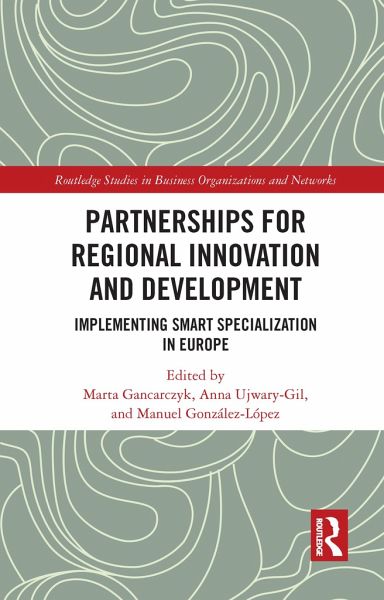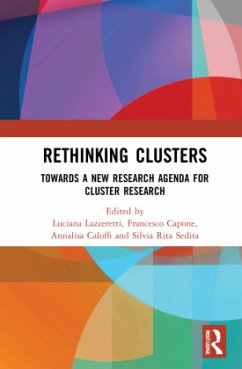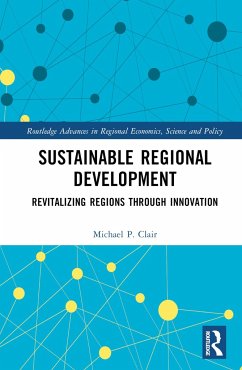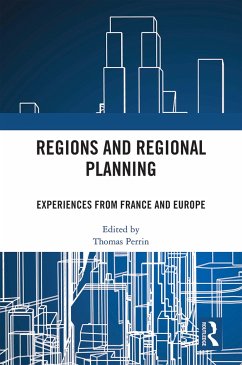
Partnerships for Regional Innovation and Development
Implementing Smart Specialization in Europe
Herausgegeben: Gancarczyk, Marta; Ujwary-Gil, Anna; González-López, Manuel
Versandkostenfrei!
Versandfertig in 6-10 Tagen
45,99 €
inkl. MwSt.

PAYBACK Punkte
23 °P sammeln!
This monograph presents the experience in the implementation of smart specialization strategies (S3) from multilevel policy governance, as well as from the bottom-up perspectives of firms, clusters, and networks in selected European countries. The presented research focuses on relevance and feasibility of the S3 adoption, emphasizing the importance of linking policy considerations with partnerships at lower governance levels.The major contribution of the presented research rests in theoretical implications and practical recommendations relevant for the implementation of regional S3 in the Euro...
This monograph presents the experience in the implementation of smart specialization strategies (S3) from multilevel policy governance, as well as from the bottom-up perspectives of firms, clusters, and networks in selected European countries. The presented research focuses on relevance and feasibility of the S3 adoption, emphasizing the importance of linking policy considerations with partnerships at lower governance levels.
The major contribution of the presented research rests in theoretical implications and practical recommendations relevant for the implementation of regional S3 in the European context, with the possibility of place-based adoption in other environments. The book is also valuable for synthesizing the most recent advancements in smart specialization as a policy concept and the concept of transformation and growth for territorial units and economic entities. This book aims to further diffuse and expand the academic community's learning of the new S3 approach in Europe and beyond.
The book will be of interest and useful to the academic community of researchers and doctoral students focused on regional innovation development and related policy, as well as on entrepreneurship, networks, and clusters. Public sector professionals dealing with regional development, regional innovation policies, and industrial transformation will also benefit from its content.
The major contribution of the presented research rests in theoretical implications and practical recommendations relevant for the implementation of regional S3 in the European context, with the possibility of place-based adoption in other environments. The book is also valuable for synthesizing the most recent advancements in smart specialization as a policy concept and the concept of transformation and growth for territorial units and economic entities. This book aims to further diffuse and expand the academic community's learning of the new S3 approach in Europe and beyond.
The book will be of interest and useful to the academic community of researchers and doctoral students focused on regional innovation development and related policy, as well as on entrepreneurship, networks, and clusters. Public sector professionals dealing with regional development, regional innovation policies, and industrial transformation will also benefit from its content.














